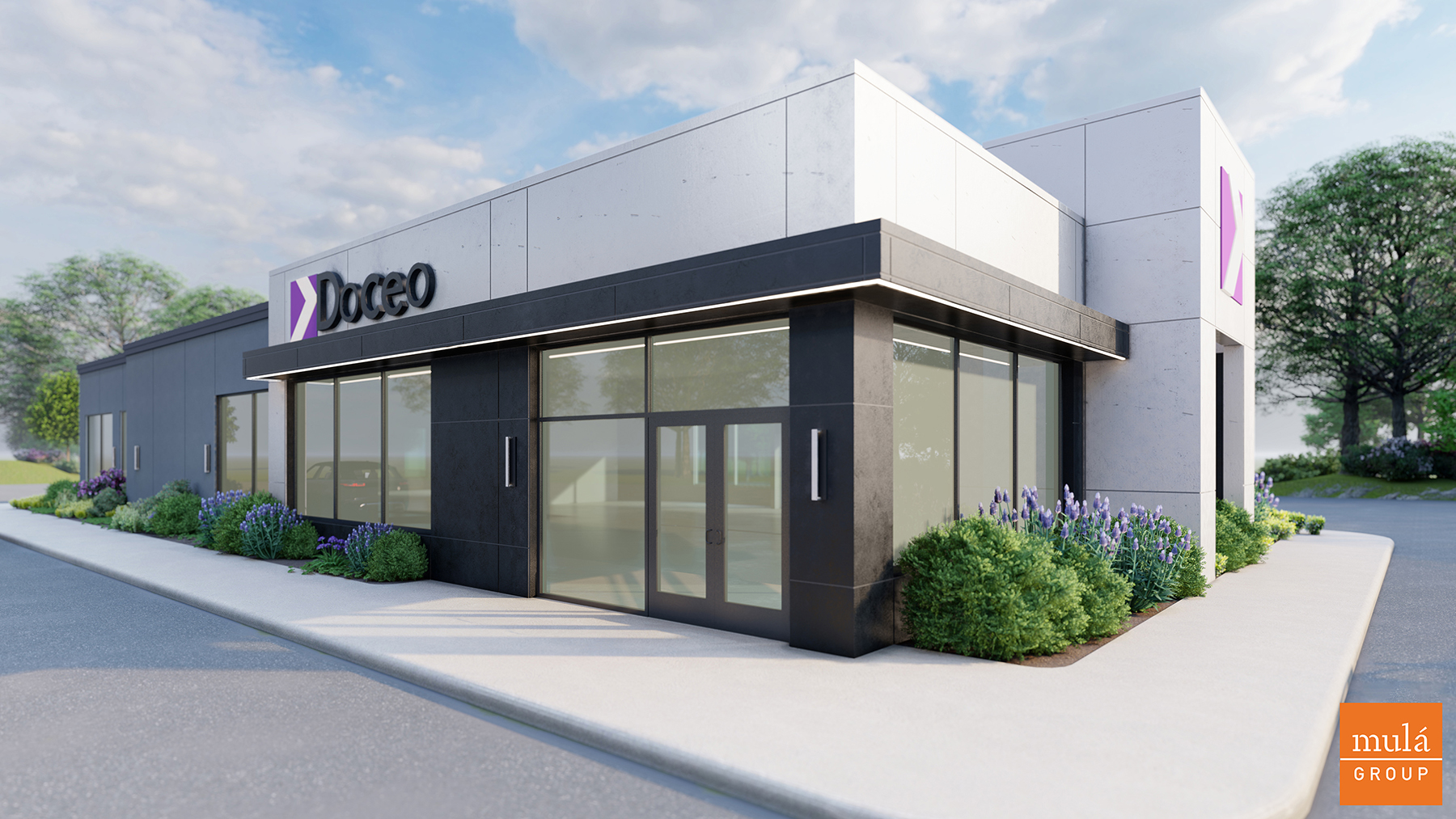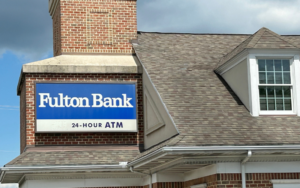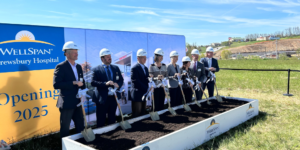When John Lewis interviews younger job applicants these days, he fields questions he did not typically hear a decade ago.
Applicants are asking more pointed questions about the future of Doceo, the regional office equipment and IT services company that he leads as president and CEO.
“There’s no question that, when we are talking to younger talent, they are concerned about Doceo 10 and 20 years from now,” said Lewis, who co-founded the company in 2004 with his late business partner, Dave Bryson. “Twenty- and 30-somethings get a bad knock in a lot of areas. But I find some of them very savvy and very forward-thinking about their futures. They’re taking a greater role in planning for their futures rather than trusting the system or trusting the government.”
How does he reassure them? In part, by sharing his goal to convert the company to an employee stock ownership plan, or ESOP.
While he expects the transition to take place over the next decade, Lewis and Doceo’s managers are already laying the groundwork.
They have adopted an open-book management approach for the company, which had sales of $18.4 million in 2023. And they have invested in growing the company. Doceo, for example, recently hired veteran marketing exec Nicole Shaffer as its first-ever chief marketing officer. She worked previously for Traditions Bank.
In addition to overseeing marketing, she is tasked with building up the marketing, communication and business development services Doceo offers to its clients. The segment currently does about $1 million in annual revenue, Lewis says. “I fully expect her to take it to a $5 million business.”
Acquisitions have been another tool. Based in York Township, York County, Doceo has made more than a half dozen, starting just before the Covid pandemic. The deals have expanded the company’s reach into Maryland and Virginia and helped grow its IT services unit, a necessity given declines in the traditional copier business.
Private equity firms have helped transform similar companies into mega-dealerships with annual revenue surpassing $500 million.
But Lewis said he stopped talking to private-equity suitors about two years ago, once he settled on ta path that best fit his vision.
“It’s accelerated growth, but it’s accelerated growth at a price,” he said, describing the price as a loss of control. “We’ve completely ruled that out.”’
Lewis spoke recently to biznewsPA about Doceo’s beginnings, recent moves and next steps. The following interview has been edited for length and clarity.

biznewsPA: Where does name Doceo come from?
John Lewis: It’s a Latin word. It means to teach. When we opened Doceo, my son was taking ninth grade Latin at Dallastown. We were struggling to come up with a name that we could trademark and he said, ‘Why don’t you try a foreign language?’ He downloaded a Latin-to-English/English-to-Latin translation software and we started plugging in different words that were meaningful to us. We viewed ourselves as teachers, not as salespeople. Doceo popped out and we said, ‘This is cool. We’re going to run with this.’ Two decades later, we’re still using that as our core go-to-market strategy.
biznewsPA: What’s the difference between a teaching approach and a sales approach?
Lewis: A sales approach is about getting a commitment and then you don’t have the staying power after the sale. For us, the hard work begins once we get the commitment. That’s when we put the work in to put a plan together so the person is using what they paid for, leveraging it to improve their business. When you do that, they’ll tell five other people. And that’s why we’ve had the growth that we’ve had. We weren’t a big, affluent company. We had to rely on a guerilla-warfare, grassroots approach to growth.”
biznewsPA: You started with zero customers. How did you get your first?
Lewis: We knocked on a lot of doors. One of the first accounts was the County of York. When the county started buying some equipment and putting their trust in us, it sent a message to others. Having the Toshiba product line also helped a lot. It was a recognizable national brand,
biznewsPA: What were the biggest challenges in the beginning?
Lewis: Money. Having the capital to buy inventory at the levels we needed to be competitive. We were competing against some very prosperous competitors. They were all buying at a much more economical price than we were. When you’re small, you pay a price. You’ve got to get over that proverbial hump. It took us a few years until we did, but once we did, we never looked back.
biznewsPA: What was your secret to getting over that hump?
Lewis: We didn’t pay ourselves. Seriously. Me and my primary business partner would just forego salaries to make sure we could pay our employees, and that was a good three or four years.
biznewsPA: How do the lessons you learned in those early years manifest in how you run the business now?
Lewis: We still appreciate the value of every dollar we make. Obviously, the threshold of those dollars and decisions has gone up over time, but we’re frugal. And we celebrate service. A lot of cultures focus on large contracts and big sales. I intentionally do not do that. As we approach 100 employees, everyone is in service. I don’t care if you’re in sales or if you’re in accounting, we all are serving the customer. There are a lot of good companies that do that; I hope we never lose sight of it.
biznewsPA: How has your market changed as the workforce has gone hybrid, sometimes virtual, sometimes back in the office?
Lewis: As an office equipment company, it has had a negative impact. People don’t need to replace their equipment as frequently. The upside is it requires less maintenance, but there’s also less dollars being spent on maintenance agreements. However, our IT business has boomed because not only do companies have to set up employees in-house, but for a home office, as well. So, you’re getting double the hardware spend. You’re getting double the security spend. Not that we’re looking for our customers to do double, but we’re there for them. We know how to put plans in place to safeguard them from security issues associated with working for home.
biznewsPA: You’ve made several acquisitions in the last couple of years. What’s driving that?
Lewis: The industry is 30 to 40 years old, so you have a lot of people that got into the industry in their 20s, and now they’re baby boomers. They’re retiring and somebody has to buy them. And our balance sheet has been in a position that we’re able to – periodically, when something makes sense from a product and culture standpoint – pull the trigger. We definitely see it as a path to growth in the future.
biznewsPA: What’s your exit plan?
Lewis: We plan to be an ESOP. We’re instilling in managers that we’re not just looking to cash out in 10 years and then they’re looking for new jobs. They’re learning lessons that are going to be able to carry this company’s legacy into the future long after I’m gone.
biznewsPA: Do you have a timeline for the ESOP?
Lewis: We’re already well on our way and we’ve been educating ourselves on the process. We have a number of key employees that already own membership units of the LLC. It’s a matter of when the primary partners and investors want to start receiving payback on their capital investment. But if you pinned me down to a timeline, I’d say within the next eight to 10 years that you’ll see the ESOP form.








